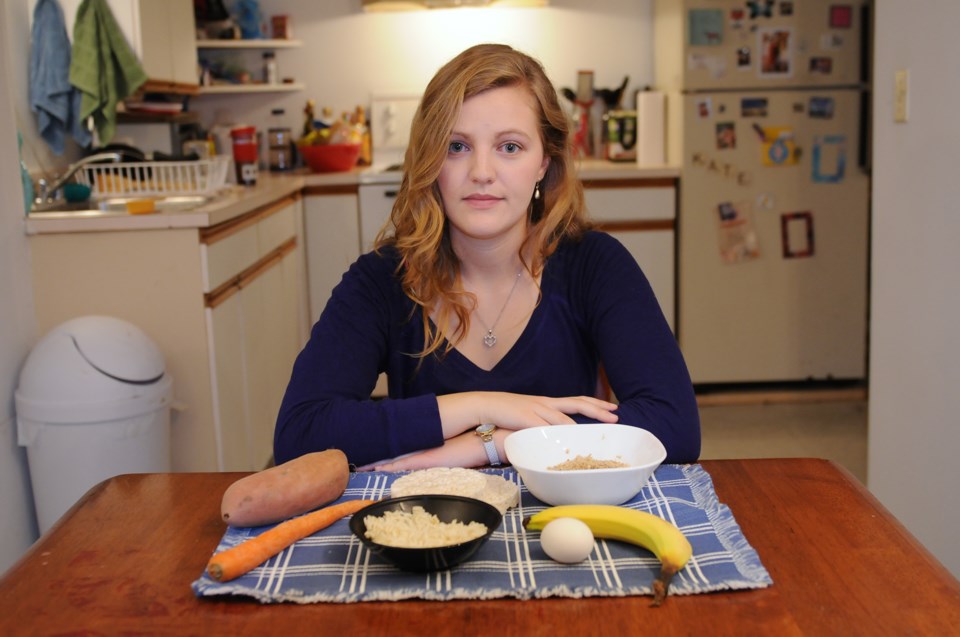On her final shopping day of the Welfare Food Challenge, Kate Kysow visited a grocery store with her last $3.25 in change.
“I was so scared to approach the till with my four potatoes and three bananas because I didn’t know if I would have enough money,” said the 22-year-old university student. “It sounds so silly but it’s this anxiety that I just haven’t felt before.”
Kysow, a fifth-year psychology student at the University of B.C., participated in the third annual Welfare Food Challenge because she’s been learning about welfare rates and barriers to income assistance and wanted to understand what it feels like to live on a meagre amount of money.
Kysow was one of more than a hundred people across the province who agreed to eat for a week as 180,000 people across the province do, on $21, without accepting food from friends or food banks.
A single person on income assistance in B.C. receives $610 a month. Deduct $450 a month for rent for an SRO, or a small room with a shared bathroom, no fridge and maybe a hot plate or microwave, a damage deposit, bus tickets and a cellphone to look for work, basic toiletries and laundry and you’re left with $21 for food.
“No money for clothes, a coffee, haircuts or any social life or treats,” states the Welfare Food Challenge press release from organizers Raise the Rates.
“Every day, when it’s been hard, I’ve just thought I’ve been able to use my kitchen today to bake these potatoes and I’ve been able to have milk because I have a fridge and I can have oatmeal at midnight because I have a microwave,” Kysow said.
“One stereotype is that people who are poor or people who are on the street aren’t trying, or have given up, and it’s their fault,” she added. “If anybody tried to live on how little money they’re allotted by the government, they would realize it’s a ton of work. It takes a lot of energy.”
Musician and cancer survivor Bif Naked announced Oct. 2 she would participate in the challenge that ended Oct. 22. Raise the Rates organizer Bill Hopwood was encouraged that Social Development Minister Don McRae’s responded to the news by saying that now that the provincial budget is balanced he would consider raising welfare rates.
Hopwood says income assistance rates haven’t been increased in more than seven years, despite inflation.
The Centre for Policy Alternatives reported in 2011 that poverty in B.C. costs the government up to $2.3 billion annually and society up to $9.2 billion.
The centre says a comprehensive poverty reduction plan would cost less, $3 to $4 billion a year.
Hopwood believes B.C. and Saskatchewan are the only provinces without poverty reduction programs.
“The only excuse is that some of the costs are front-loaded and some of the benefits take some time,” he said. “But you could say exactly the same about building a road.”
Raise the Rates wants a comprehensive poverty reduction plan that includes increased income assistance and minimum wage, more social housing and high-quality, low-cost public childcare.
twitter.com/Cheryl_Rossi
crossi@vancourier.com



